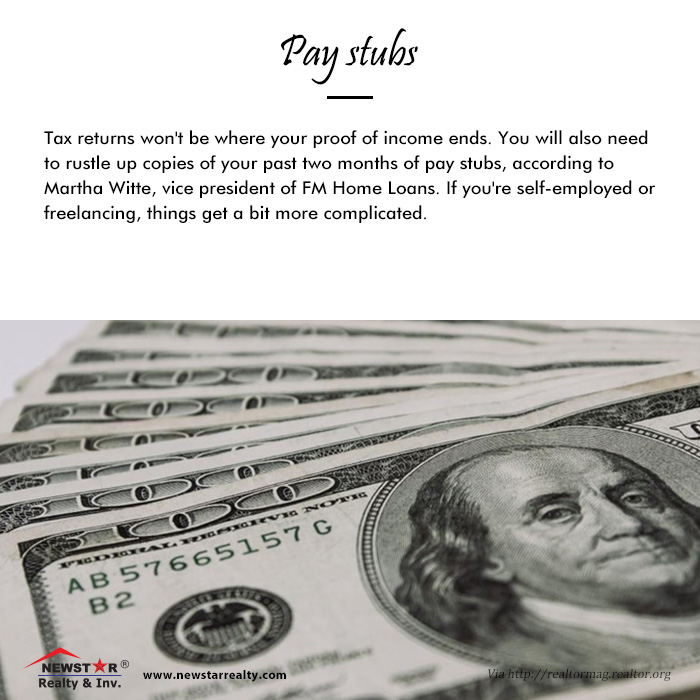Tag Archives: rental properties
7 Smart Storage Solutions for Small Apartments

Whether you’ve downsized or underestimated the available space in your apartment, dealing with a lack of storage can cause a clutter-fueled conundrum.
The solution: rethink your dwelling and create smart storage solutions. From dual-purpose furniture to the clever use of tension rods, you can create plenty of room to store your stuff, even in an “itty bitty living space.”
1. Make Use of Doors
The closets and cabinets are full. Now what? There’s an often-overlooked storage area lurking behind some of the interior doors—the back of the doors themselves.
An over-the-door hanging basket system allows you to hang more stuff inside the closet, as long as the door is the standard, hinged-entry style. You won’t need nails, and you can still open and close the door normally.
Plastic over-the-door shoe organizers can be used for more than just shoes:
- On the bedroom (or bedroom closet) door, fill them with socks or belts.
- In an entryway closet, stash cold-weather hats and gloves.
- In the bathroom closet, fill them with spare washcloths, poufs, or small toiletry items.
- They’re also useful for housing craft supplies, pet supplies, and small toys.
Door-mounted wire baskets are perfect for storing foil, wax paper, and extra sponges in kitchen cabinets.
Be sure to ask your landlord before installing a basket that requires screws in the door.
2. Install Tension Rods
Narrow tension rods are typically used to hang cafe curtains, but they work wonders inside kitchen cabinets. Install several tension rods vertically between the top of one cabinet or cupboard shelf and the bottom of the next to create dividers. Stash pot lids, pizza pans, and baking sheets between the tension rods to keep them in one place and make them easy to find. No more digging through a stack of stuff to find the right cookie sheet.
3. Add Storage Units
A trim shelf unit or freestanding cabinet works wonders in tiny spaces, especially the bathroom. Freestanding furnishings that are less than a foot deep (front to back) don’t stick out far from the wall. They’re ideal for that dead space next to the sink or near towel bars in the bathroom. Stash towels and washcloths, the hairdryer, cleaning supplies, or random toiletries in add-on cabinets. These units are a godsend when the bathroom lacks a closet.
4. Consider Double-Duty Furniture
Living in a small apartment is a lot like living in a tiny house or traveling in an RV. Every furniture purchase should be thought out to make sure it’s the best choice for the space. The best furnishings for small places have more than one function. Instead of a regular coffee table, use a flat-topped storage trunk. Instead of a solid ottoman, pick one with storage space inside.
The same holds true in the bedroom. If you’re purchasing a new bed frame, opt for a captain’s bed or a platform bed with built-in drawers. If a bed frame with built-in storage is too unwieldy (think about the next time you move), purchase under-bed storage bins, or make your own unique version by adding wheels to the bottoms of old dresser drawers.
Bonus under-bed storage tip: Store your suitcases under the bed and fill the suitcases with off-season clothing or spare blankets.
5. Make Magnetic Spice Racks
No room to store spices in the kitchen? Opt for a magnetic spice holder.
You could also make your own from metal flashing and small spice jars with magnets mounted to the bottom of each container. Just glue strong magnets to the back of the flashing, and stick the spice holder on the side of a magnetic refrigerator.
The exposed side of a wall-mounted kitchen cabinet works great as well:
- Add Command Strips or another removable, temporary adhesive product, to the back of your spice holder instead of magnets. Command Strips are designed for easy removal when it’s time to take them down. Even so, check with your landlord first to make such it’s okay to use them in your apartment.
- Then stick the assemblage on the side of the cabinet.
Spice storage problem solved.
6. Use Suitcases as Storage
Vintage hard-sided suitcases add style to a space with an added bonus: tons of extra storage. Stack three or four suitcases to make an end table, side table, or nightstand, and stash items you don’t need to use often inside the suitcases. To make the stack sturdier, attach short bolts through the lid of one case through the bottom of the next.
7. Add Bookcases
Use short bookcases around the apartment—in the bedroom, dining room, or living area—to store items besides books. Here are two ideas:
- Display some of your favorite home decor accessories on the shelves.
- Add storage baskets to create tons of extra storage space for clothing, toys, blankets, or anything else that doesn’t have a dedicated space of its own. Note: Storage baskets are available in a vast array of styles and colors, so you’re bound to find something that enhances the look of your apartment while adding smart and portable storage solutions to your tiny living space.
Every minor, clever tweak you make to enhance your apartment’s storage will have a major impact—less clutter and more peace of mind.
Credit to Kathy Adams
Kathy is an award-winning investigative journalist, not to mention a writer, brand blogger, decor/DIY expert, renter, commercial landlord. She also writes for brands such as Behr, Kroger, Canon and Black+Decker on topics pertaining to home and apartment decorating and maintenance.

Moving in the Right Direction
You Only List Once
Solutions made EASY
How to Solve the 5 Most Common Complaints from Tenants
![]()
It’s bound to happen: tenants will come to landlords with complaints. How are you going to react?
If you want to keep good tenants in your property, you need to be responsive to a tenant’s complaints, or even better, not let problem situations develop in the first place. Be proactive. A landlord needs to be proactive if he or she wants to be successful.
Being slow to act on legitimate issues will frustrate and alienate your renters.
Here are some of the most common things tenants might complain about and how you can handle them. Or better yet, how you can avoid the problem situations before they arise.
1. Where’s my security deposit?
When you become a landlord, you should know the security deposit law for your jurisdiction. You can look up your state’s law here: Landlord-Tenant State Laws & Regulations
You typically have 30 days to return your tenant’s security deposit or explain why you’re keeping all or part of it. This requirement varies by state, which is why you need to know your state’s law and follow it. Otherwise, you could be sued.
Note that you can’t keep the security deposit to renovate your property. You can, however, use the money to repair anything your tenant damaged that is above and beyond “normal wear and tear.”
2. The __________ is still broken.
The debate can go something like this:
“You never fixed the broken oven,” your tenant says.
You reply, “I never knew the oven was broken.”
If you have a maintenance request system in place, you can avoid this he said/she said situation entirely.
Quick, Easy Communication
There’s no need for a notarized letter sent to you certified mail. You don’t need a formal system, but maintenance requests should be in writing.
Encourage your tenant to text or email you about the problem.
You should then respond as soon as possible (ideally within 4 hours), letting them know you are aware of the problem and how you plan to resolve it. If your tenant calls you to report a maintenance request, you should text or email them back with an acknowledgement of the repair request and the plan is to resolve it. That way, you have a paper trail.
Not All Repairs Need to be Fixed
Then you should get the oven, or whatever the problem might be, fixed.. As soon as you know when the repair person is coming, let your tenant know that they either need to be home at that time, or if they can’t be there, you or your representative should let in the repair person. If you don’t intend on fixing the problem, communicate that to renters, too. Don’t go radio-silent.
Don’t mistake a wish list from a repair list, but don’t go radio-silent either.
It’s worth mentioning that not all requests need to be fulfilled. Perhaps the renter is asking you to change the paint color, or install granite countertops. Don’t mistake a wish list from a repair list. While you should strive for excellence, a landlord is only required to make repairs for issues that affect habitability.
After the repair is finished, follow up with your tenant in writing to make sure the repair was satisfactory.
3. I can’t reach you.
It’s best if you don’t set up arbitrary times when you can and can’t be reached. Your tenants should be able to contact you for legitimate reasons any time, and you should answer in a timely manner.
If your tenant starts to contact you for non-pressing reasons, you can let them know—in a calm and professional manner—when they should and should not contact you. And give them examples of “crying wolf.”
Good communication with your tenants comes with the territory. If that’s something you’re unwilling to do, hire a property manager to communicate on your behalf. It’s unacceptable to ignore your tenants.
4. The neighbors are horrible, so I can’t sleep.
Landlords often get complaints that the neighbors are undesirable in some way, usually because they’re noisy.
Unfortunately, you usually can’t do much about bad neighbors unless they’re also your tenants.
You could take measures to better insulate your property from sound, by installing carpeting or planting bushes around the house, but that might not be enough.
In situations where cigarette smoke is crossing into other units, you could seal up all the gaps around outlets and switches, and try to keep the air systems isolated.
If the Neighbors are your Tenants
If the noisy neighbors also happen to be your tenants, you can speak with them. If they continue to be inconsiderate, and by doing so, are violating lease terms, you might wish to consider giving them an eviction notice. Or you might not want to renew their lease at lease renewal time.
If the Neighbors are not your Tenants
If the noisy neighbors are not your tenants, ask your complaining tenants to speak with their neighbors about the problem. If that doesn’t do any good, or if your tenant doesn’t want to take action, have your tenant send you something in writing about the problem.
If your property has a homeowners association, send them a copy of the complaint. Ask to be notified about any action they might take.
If there is no HOA, let your tenants know they can call the police. Explain that it’s difficult for you to approach the neighbors or call the police since you aren’t involved, and, therefore, can’t give a first-person recounting of what happened. Plus, you can’t be certain the neighbors really are out-of-bounds.
5. Eeeek, bugs!
If your property is infested with bugs, rodents, or other such nastiness, call an exterminator. Don’t blame your tenant or accuse them of being dirty. Most of the time, your tenant isn’t the reason for a pest problem.
Also, if you had one infestation, it’s a good idea to have a pest service perform periodic or quarterly treatments. This benefits you as well, since you are the property owner.
If your tenant leaves dirty dishes all over the house or maintains other unsanitary conditions, you can evict them if that’s a violation of the lease terms. If not, just wait it out. You don’t need to renew their lease.
Bottom Line
It’s your responsibility to reply to legitimate complaints in a timely manner. Proactive landlords will prevent issues before they arise.
As long as you do your best to fix issues that are in your control, you should have no problem keeping good tenants in your property.
Credit to Laura Agadoni
Laura Agadoni is a landlord and journalist whose articles appear in various publications such as Trulia, The Houston Chronicle, The Motley Fool, SFGate, Zacks, The Penny Hoarder and azcentral.

The Best In The Business
What You Need to Buy A House





5 Advantages of LIVING IN AN APARTMENT
6 Top Ethics Issues Today
![]()
Technology is raising a host of ethics issues, such as what’s okay and what’s not to say on social media. But the biggest ethics issues continue to be those that recur year after year such as matters involving property disclosures and settlement procedures. Here are the biggest ethics issues today along with how to handle them.
1. ‘Coming Soon’ properties.
To put up a sign or advertise to let consumers know a property is coming on the market, you have to do it the right way. First, you have to have the owner’s authorization before you can provide notice of sale of a property or advertise the property, and “coming soon” would constitute both a notice of sale and an advertisement. Second, you need to check your state license laws, because they might require you to have a listing agreement in place before advertising a property, and saying a property is “coming soon” would constitute a form of advertising. Third, you can’t let other associates in your firm show the property if you say in the MLS that it’s not available for showing. If they do, that could be construed as a misrepresentation of its availability. Conversely, if it’s listed as available for showing, associates from any firm have to be able to show it. Fourth, if buyers are interested in the property, you have to direct them back to their exclusive representative, if they have one, and not provide them any substantive services.
2. Multiple offers.
With prices rising and interest rates low, multiple offers are becoming more frequent in many markets. Here’s the right way to handle them: First, present all offers as objectively and quickly as possible. Second, if you’re asked about them by a buyer or cooperating broker and if the seller has given you approval, disclose the existence of all offers, as well as their source. Third, If you have a signed agreement to act as the buyer representative, you have to let the buyer know that the seller or the seller’s representative might not treat the existence, terms, or conditions of their offer as confidential. Only if the seller or seller’s agent is required to by law, regulation, or an agreement do they have to treat the offer confidentially.
3. Unauthorized access.
It’s not always convenient to meet clients when they want to look at a house, but you need to be there or you risk violating the terms and conditions the seller has set for viewing the property. You also can’t give a prospect a key, a lockbox combination or use of a lockbox key. And allowing any unauthorized user, whether a member of the public or a broker without a lockbox key, the use of that lockbox key is a violation of common lockbox system rules through MLSs or associations.
4. Social media.
Public? Personal? Professional? Anything you say on Facebook, Twitter, or any other social media platform about real estate, even if you’re just giving your informal opinion, must be accurate to the best of your knowledge. That’s because social media posts, for all practical purposes, are treated as marketing under the NAR Code of Ethics and Standards of Practice. That’s the case even though it’s typical in social media to blur the lines between what’s personal and professional. What’s more, anything you say must present a true picture of the market or a property. And your professional affiliation must always be clear. That means either including the name of your firm in your post or tweet or linking to it. On platforms such as Craigslist, where there is no link to another display, you have to include the firm name in the communication. Check your license law for any additional requirements.
5. Settlement procedures.
There are important differences between the Real Estate Settlement Procedures Act (RESPA) and the NAR Code of Ethics. The Section 8 anti-kickback part of RESPA prohibits the giving and receiving of a thing of value in exchange for a referral, with one exception: if the referral is to an affiliated business, like a mortgage originator or title company properly set up under RESPA, and that business arrangement is disclosed. The Code of Ethics and Standard of Practice 6-1 require disclosure of any financial benefit you receive for referring someone for something.
6. Property disclosure.
Each year property disclosure disputes are the top complaints filed by consumers and the past year has been no different. You are not obligated to discover latent defects with the property or provide advice on matters that are outside the scope of your license. For example, when asked about roofing problems, you should direct your client to a roofer. What you must disclose, though, are matters you observe within the scope of your license. Brown water stains on the ceiling, for instance. Even if the owner doesn’t include that on a seller disclosure form, you should disclose that as a sign of possible water intrusion. When in doubt, disclose.











